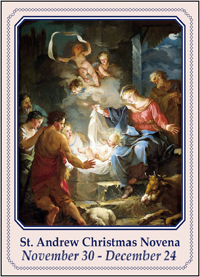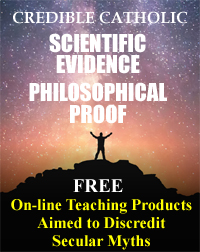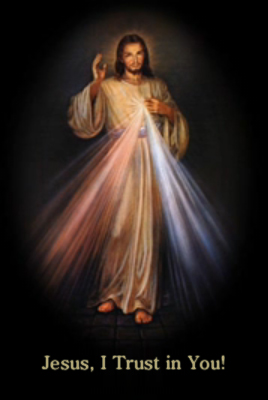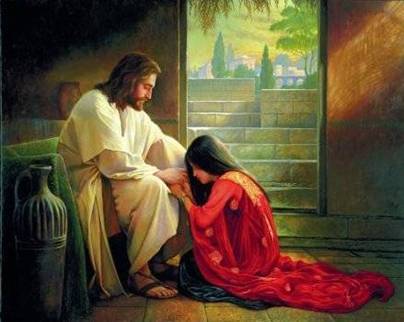
 Home Home  Knights of Columbus Knights of Columbus  Ladies Guild Ladies Guild  Youth Activities Youth Activities  Volunteering with Youth Volunteering with Youth  St. Thomas Cemetery St. Thomas Cemetery  Fr. Rich's Homilies Fr. Rich's Homilies  History History  Mass Time Schedule Mass Time Schedule  Ministries Ministries  Sacraments Sacraments  Map Map  Mass Ministers Schedule Mass Ministers Schedule  Message Board Message Board  Upcoming Events Upcoming Events  Fund Raisers Fund Raisers  Personnel Personnel  Photo Album Photo Album  Contact Us Contact Us                |
Sacraments BAPTISMS OF INFANTS & CHILDREN Parents are expected to be registered in the parish and to attend a class on the Sacrament of Baptism before a child is baptized. Due to the hectic schedule that often faces new parents as well as the nature of material covered, we encourage parents to attend prior to the birth of the child. Call the Rectory Office for an appointment. RECONCILIATION (Confessions) Saturdays – 3:45 pm in the church or by appointment HOLY EUCHARIST Any parishioner who is unable to attend Mass will be provided the opportunity to receive Communion at his or her residence or in the hospital. Please call the rectory during office hours to make arrangements. CONFIRMATION Confirmation is celebrated during the Easter Season of the candidate's junior year of High School. The preparation is a two year process preceded by attendance in Religious Education classes at least in the freshman year. SACRAMENT OF THE SICK Any Catholic who is seriously ill can receive the Sacrament of the Sick. Call the parish office and give the name, address, and phone number. Please indicate whether or not there is an emergency. In case of an emergency, the Sacrament of the Sick will be administered as soon as possible. Communal celebrations of the Sacrament of the Sick are held periodically as announced in the parish bulletin. Many people are still unclear about cremation. The Church allows cremation but the preferred option is with the body present in the church, the cremation taking place after the Mass, then the cremains must be buried. Keeping the ashes in the house or scattering the ashes are not in keeping with the traditional dignity accorded by the Church for the deceased. HOLY MATRIMONY The Sacrament of Matrimony requires a time of Preparation. Arrangements are to be made with the priest or the Deacon of the parish nine months before the date of marriage. Your church date and time are to be set prior to your reception date and time. The Pre-Cana Conferences or Engaged Encounter must be part of the marriage preparation. Either the bride or the groom or both must be a registered member of the parish. To make Marriage Preparation arrangements in the parish, call 623-5526. HOLY ORDERS For information about becoming a priest or deacon, please call for an appointment with a priest. Although not part of the Sacrament of Holy Orders, a religious profession which includes the embracing of Poverty, Chastity, and Obedience is an essential part of our Catholic Community. To learn more about becoming a Religious Brother or Sister, please contact a priest. All Catholics are encouraged to pray for an increase in vocations. A GUIDE TO THE SACRAMENT OF PENANCE WHAT IS CONFESSION? Confession is a sacrament instituted by Jesus Christ in his love and mercy. It is here that we meet the loving Jesus who offers sinners forgiveness for offenses committed against God and neighbor. The sacrament, as the Catechism of the Catholic Church notes, is known by many names. Sometimes “it is called the sacrament of conversion because it makes sacramentally present Jesus’ call to conversion” But it is also better known as “the sacrament of Penance, since it consecrates the Christian sinner’s personal ecclesial steps of conversion, penance, and satisfaction.” For many of us it still continues to be known as “the sacrament of confession, since the disclosure or confession of sins to a priest is an essential element of this sacrament”. Finally, it is also called the sacrament of Reconciliation because it reconciles sinners to God and then to each other. The graces of Christ are conferred in the sacraments by means of visible signs - signs that are acts of worship, symbols of the grace given and recognizable gestures through which the Lord bestows his gifts. In the sacrament of Penance, the forgiveness of sins and the restoration of grace are the gifts received through the outward sign, i.e., the extension of hands and words of absolution pronounced by the priest. WHAT IS SIN? Unfortunately, in society today, many people have lost the understanding of sin. Our Holy Father has stated that “it happens not infrequently in history, for more or less lengthy periods of time and under the influence of many different factors, that the moral conscience of many people becomes seriously clouded. In our day, many people have lost the sense of sin and feel that they can do whatever they wish without considering or fearing the consequences. For such people, the term “sin” has no meaning. Yet wet know that sin is a terrible evil, which all of us must come to understand and with which all of us must struggle. According to the Catechism of the Catholic Church, sin “is an offense against God as well as a fault against reason, truth, right conscience. Sin is a deliberate thought, word, deed, or omission contrary to the eternal law of God.” In other words, sin is willfully rejecting good and choosing evil. Father John gave us the definition of sin as the destruction of good. Therefore, evil/sin cannot exist without good. Therefore, good is of a higher order and doesn't need evil to exist, whereas sin needs good to exist. In judging the degree of sin, it is customary to distinguish between mortal and venial sins. “Mortal sin,” the Catechism teaches, “destroys Sanctifying Grace in the heart of man by grave violation of God’s law. Venial sin allows Sanctifying Grace to subsist, even though it offends and wounds it”. MORTAL SIN: A grave infraction of the law of God that destroys the divine life in the soul of the sinner (sanctifying grace), constituting a turning away from God. For a sin to be mortal, three conditions must be present: grave matter, full knowledge of the evil of the act, and full consent Of the will”. “To choose deliberately -that is both knowing it and willing it - something gravely contrary to the divine law and to the ultimate end of man is to commit a mortal sin. This destroys in us the sanctifying grace without which eternal happiness is impossible. Unrepented, mortal sin brings eternal death. This “eternal death” we call Hell, where those who have died unrepentant of mortal sin suffer the eternal separation from God and loss of eternal happiness, i.e., seeing God face to face. VENIAL SIN according to the Catechism, “does not destroy the divine life of the soul, as does mortal sin, though it diminishes and wounds it” (1855). Venial sin is a failure to observe necessary moderation, in lesser matters of the moral law, or in grave matters acting without full knowledge or complete consent” (1862). We must realize, however, that while venial sins do not have the grave effects of mortal sin, “deliberate and unrepented venial sin disposes us little by little to commit mortal sin” (1863). It should be the goal of every Christian to strive, through steadfast prayer, acts of penance and works of charity, for a life free of sin. WHY IS CONFESSION NECESSARY? We need the sacrament of Penance because each of us, from time to time, sins. When we recognize that we have offended God who is all-deserving of our love, we sense the need to make things right. Like the prodigal son in the Gospel, we long to know again the loving embrace of a forgiving father who patiently waits for each of us. Jesus himself has established this sure and certain way for us to access God’s mercy and to know that our sins are forgiven. By virtue of his divine authority, Jesus gives this power of absolution to the apostolic ministry. As the Catechism of the Catholic Church says, “in imparting to his apostles his own power to forgive sins the Lord also gives them the authority to reconcile sinners with the Church” (1444). We need to know that our sins are forgiven. There is something in our human nature that calls out for the assurance that our sins are actua11y forgiven. Confession is the visible manifestation of God’s mercy that provides us, in human terms as well, the clear awareness that God has forgiven us. WHAT IS THE SOURCE OF THE FORGIVENESS OF OUR SINS? Jesus invites us to reconciliation with God. It is Christ, the good Shepherd, who offers us forgiveness and the power to turn away from sin. As in Adam all people die, so in Christ all shall be brought to life — a fullness of life, a new creation already beginning in us through grace (cf 1 Cor 15). This is the message we proclaim when we face the mystery of sin. Just as Adam brought sin, death, disharmony, confusion, disruption and struggle into our lives, Christ, the new Adam, gives us grace, redemption, new life and salvation. It is in Jesus Christ that we find the beginnings of the new creation. Grace is the beginning of a new creation for all those baptized into Christ. In short, Jesus’ passion and death have rescued us and given us new life. HOW IS THE CHURCH ABLE TO FORGIVE SINS? The Church professes belief in “the forgiveness of sins” and is fully aware that only God forgives sins. It also believes that Jesus, through his death, washed away all sin and, after his resurrection, gave to his Church the power and authority to apply to us the redemption he won on the cross, namely God’s forgiveness of our sins. As the Catechism points out, our faith in the forgiveness of sins is tied to faith in the Holy Spirit and the Church: “It was when he gave the Holy Spirit to his apostles that the risen Christ conferred on them his own divine power to forgive sins: ‘Receive the Holy Spirit. If you forgive the sins of any they are forgiven; if you retain the sins of any, they are retained”’ (976; cf. John 20:22-23).
|
HI THERE Eucharistic Adoration 
Click here for Novena and Blindness Cured Miracle! 


Divine Mercy Chaplet Visit Our Catholic Links _Young Catholic Minute_ RELIGIOUS FREEDOM! for Our Nation (print) Novena & Homilies (video) What's Happening? Impartial & Non-Partisan FEATURES Virtual Rosary Catholic Apologetics Movie: St. Therese The Real Presence Catholics Come Home Letter on Respect For Rights Of Conscience Act The Church in Need Action Alert HHS Mandate TODAY Saint of the Day Divine Mercy Minute/St Faustina Today's Mass Readings Daily Catholic Question CATHOLIC NEWS US Bishop's Statement on War AmericanCatholic.org National Catholic Register Kolbe Center for the Study of Creation MARRIAGE Marriage - Unique for a Reason Catholic Marriage Prep For Your Marriage PROLIFE Lost a Child to Abortion? Dealing with Loss Hope After Abortion Silent No More Life News Free Catholic Email Account National Right to Life Intrinsic Human Dignity The Inalienable Right to Life Catholic Bishop's Prolife Site Crisis Pregnancy Help Legislative Action Alerts Elections & Candidates VIEW ONLINE Vatican YouTube Channel Watch / Listen to EWTN Live Catholic TV Online BOOKS Catholic Church Catechism Jesus of Nazareth by Pope Benedict XVI John Paul II: A Light for the World Knowing Right from Wrong Catholic Books PRAYERS/REFLECTIONS Pray the Rosary For Peace The Divine Mercy Devotion The Divine Mercy Prayer Line Minute Meditation Sunday Reflections EWTN Library of Devotions  DOCUMENTS 'Keep the Faith' Lectures Library FAQ on Catholic Faith EWTN Library of Documents Documents of Vatican II ONLINE CATHOLIC STORES EWTN Religious Catalogue OTHER CATHOLIC SITES Mass Times Across the US Official Vatican Site US Bishop's Website Good Catholic Investing Send an e-card (Free) |


